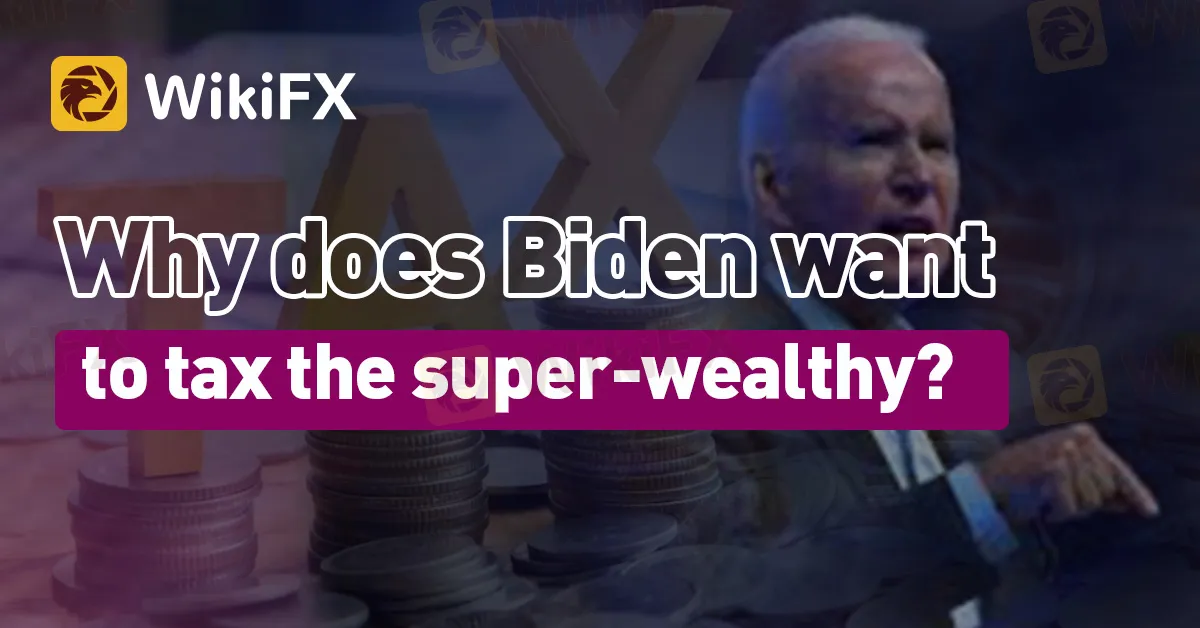简体中文
繁體中文
English
Pусский
日本語
ภาษาไทย
Tiếng Việt
Bahasa Indonesia
Español
हिन्दी
Filippiiniläinen
Français
Deutsch
Português
Türkçe
한국어
العربية
Why does Biden want to tax the super-wealthy?
Abstract:Elon Musk, the world's richest man and chief executive of electric car maker Tesla Inc., said that U.S. President Joe Biden's call for higher taxes on America's super-rich would only hurt low and middle-income classes.

Elon Musk, the world's richest man and chief executive of electric car maker Tesla Inc., said over the weekend that U.S. President Joe Biden's call for higher taxes on America's super-rich would only hurt low and middle-income classes.
He tweeted, “I agree that we should make elaborate tax avoidance schemes illegal, but doing so would upset a lot of donors, so we'll see talk but no action.” Those who will actually be forced to bear the burden of excessive government spending are low - and middle-income earners, because they cannot escape payroll taxes.
Musk's tweet was in response to a tweet from Biden, who had earlier tweeted: “It's about time the super-wealthy start paying their fair share.” Biden noted that while the number of billionaires in the United States has grown to about 1,000, they pay only about 8% of their income in taxes.
According to a White House fact sheet released Saturday, which notes that many wealthy people pay lower tax rates than middle-class workers. “But when a billionaire earns income because their investments increase in value, that gain is too often never taxed at all.”



Tax the rich to replenish the Treasury
Earlier, the White House announced that as part of the 2023 fiscal year budget, the Biden administration would propose a minimum 20% tax on the wealthiest households in the United States, covering unrealized gains on assets such as stocks. If passed by Congress, the “rich tax” proposal would help reduce the U.S. deficit by about $360 billion over the next 10 years.
The Biden administration says this is due to a combination of job losses, reduced earnings, tax credits, and incentives under the pandemic. In response to the epidemic, the US government launched massive stimulus measures, and with the growing debt burden, raising taxes became a necessary measure.
On the other hand, the rich are getting richer under the epidemic, but the existing tax policy is difficult to tax the “unrealized gains” of the rich, and the most prominent feature of Biden's “rich tax” is that it covers this part of the “unrealized gains”.
The main reason many wealthy Americans have paid no federal income taxes in some years is that their primary source of wealth is not wages, but stocks, and if they do not sell stocks, they can avoid some of the tax liability.
As a result, wealthy families would have to pay 20 percent of their “entire income” in taxes under Biden's proposal, which would include the value of assets such as stocks.

Disclaimer:
The views in this article only represent the author's personal views, and do not constitute investment advice on this platform. This platform does not guarantee the accuracy, completeness and timeliness of the information in the article, and will not be liable for any loss caused by the use of or reliance on the information in the article.
Read more

The Daily Habits of a Profitable Trader
Every professional trader follows a structured approach to ensure they are well-prepared, disciplined, and able to seize opportunities with confidence. Whether you are a seasoned investor or an aspiring trader, adhering to a robust daily checklist can significantly enhance your performance. Use this checklist to check if you are a qualified trader

The Impact of Interest Rate Decisions on the Forex Market
Interest rate changes determine currency attractiveness, influencing capital flows and exchange rate trends. Understanding this mechanism helps investors navigate the forex market effectively.

How a Housewife Lost RM288,235 in a Facebook Investment Scam
A 47-year-old housewife in Malaysia recently fell victim to an online investment scam, losing a substantial sum of RM288,235 after engaging with a fraudulent scheme advertised on Facebook.

A Trader’s Worst Mistake: Overlooking Broker Reviews Could Cost You Everything
In today’s digital age, reviews influence nearly every decision we make. When purchasing a smartphone, television, or home appliance, we pore over customer feedback and expert opinions to ensure we’re making the right choice. So why is it that, when it comes to choosing an online broker where real money and financial security are at stake many traders neglect the crucial step of reading reviews?
WikiFX Broker
Latest News
The Withdrawal Trap: How Scam Brokers Lure Victims into Paying More
FCA to Investors: Think Twice Before Trusting These Brokers
Trump\s tariffs: How could they affect the UK and your money
Trump gambles it all on global tariffs he\s wanted for decades
TradingView Brings Live Market Charts to Telegram Users with New Mini App
Trump tariffs: How will India navigate a world on the brink of a trade war?
Interactive Brokers Launches Forecast Contracts in Canada for Market Predictions
Authorities Alert: MAS Impersonation Scam Hits Singapore
IG Group Acquires Freetrade for £160M to Expand UK Investment Market
U.S. March ISM Manufacturing PMI Released
Currency Calculator







